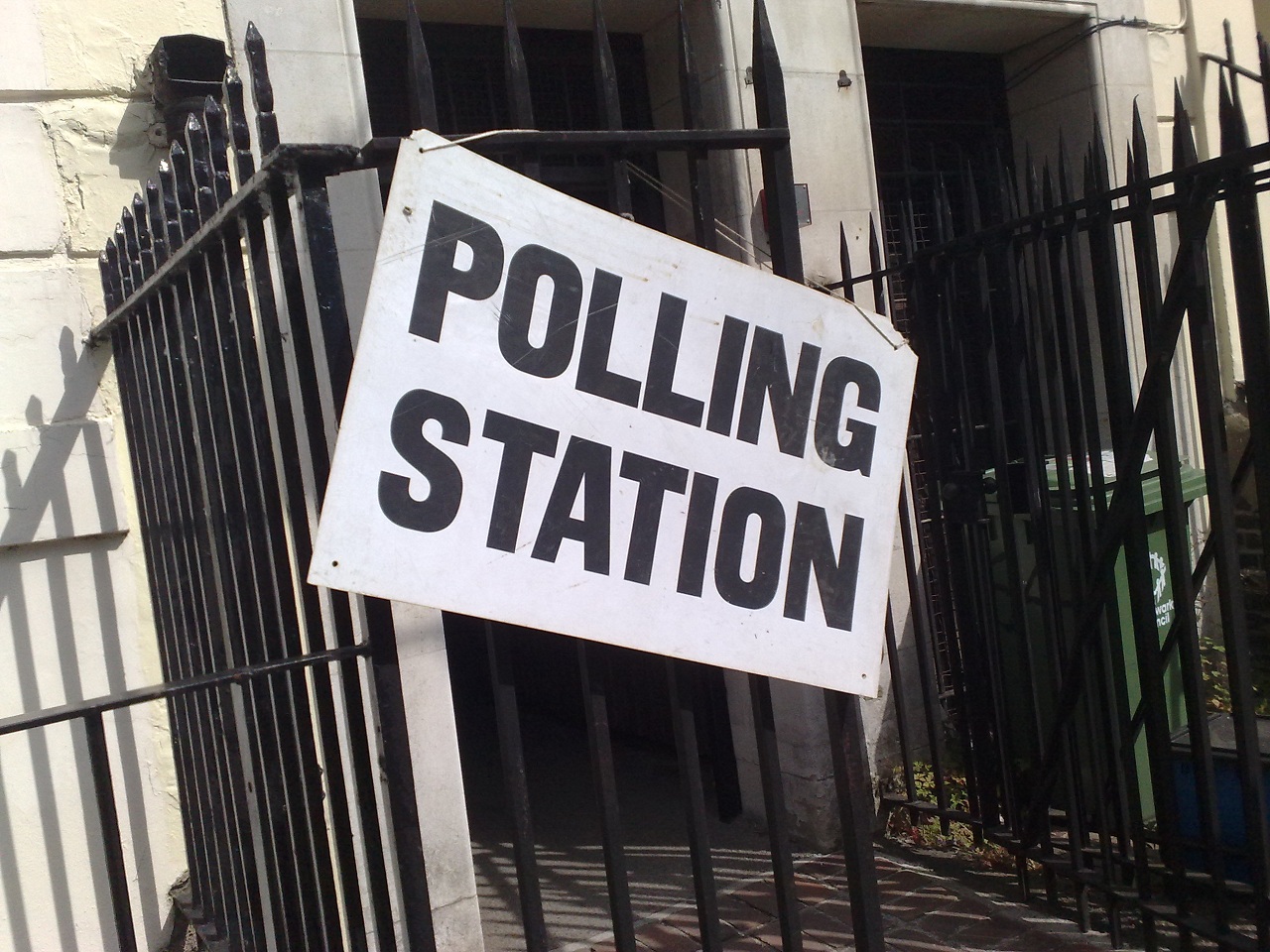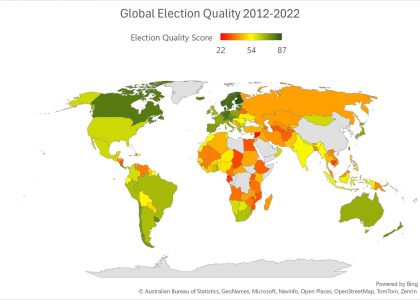Toby James provides updates on some of the problems that voters have experienced casting their ballot at the 2015 UK General Election (the blog will be updated during the day).
The general election is underway and the polls are open. It is predicted to be a tightly fought contest. But has everything gone to plan organisationally? Allowing millions of citizens to cast their votes and have them counted is a major logistical challenge and election officials are often the ‘unsung heroes’ of democracy. In 2010, after all, there were scenes of chaos in some polling stations, albeit just a few. Will the election be well run?
The short answer is “probably, yes, but that is not to say that the election is taking place without problems,” as tweets like this reveal:
https://twitter.com/Choclez/status/596196768741781504
There is a long answer, though.
This is the first election in which individual electoral registration will make its first imprint on British elections. Since last year people have had to register themselves rather than have another do this on their behalf as part of a household. They also have to provide a national insurance number so that their details can be verified by electoral officials against the DWP database. My research (subsequently presented to two parliamentary select committees) suggested that this would lead to a decline in registration levels, especially among communities that usually register on-block (like students in halls of residence or the elderly in nursing homes). It would also place a resource burden, if it was not properly financed, on local council officials who would have to verify the new registrations before adding them onto the electoral register.
The good news was that online electoral registration has been introduced which will hopefully have offset this decline somewhat (we don’t have the registration data yet). This has, however, facilitated another problem. There has been late surge in registration levels with 469,047 coming in on the last day – all of which would have to be verified before being added to the register under the new system.
These are major transformations for British elections which have had severe consequences for the resources, staff and way in which local government runs elections. The last major change to the registration was in 1918. There will need to be a serious review after the election as to what the consequences of this have been, and what the next steps should be. Alistair Clark and I are running a survey asking presiding officers and polling clerks about their perceptions of the electoral process today. This is the first time that this has been done in the UK and we will report the findings in due course.
There is, however, some very impressionistic information about the types of problems that are occurring on social media. They are impressionistic because things can ‘go viral’ via Twitter without all of the information being apparent and without the a real sense of whether problems are isolated or widespread. Nonetheless, we do know that:
- Queues formed at polling stations as the voting hours drew to a close:
Some encouraging signs for turnout in #Norwich -> RT @AlanDPawsey 300 people in queue to #vote in Norwich pic.twitter.com/l9MFWneTTq #voteeast
— Rob Setchell (@RobSetchell) May 7, 2015
40 minute queue to vote. Had to pick about a million councillors. Democracy in action!
— Ben Poor (@magicbadger) May 7, 2015
Longest queue for a polling station I've ever seen, a good sign, or just incompetence?
— Ben L-C (@BenGLC) May 7, 2015
- Nearly 150,000 people registered to vote after the deadline of Monday 20th April and were therefore too late to be allowed to vote at the election. We have a 12 day deadline in the UK, but a deadline closer to day of the vote could allow more people to vote. In some US states citizens are allowed to register on the day of an election. If this system was present in the UK, many more people would have been able to cast their vote.
- Some people have claimed to have registered to vote, but have not received their polling cards. They don’t need them to vote, but at the last general election, many people who did not vote, said it was because of administrative issues like this.
- Others, such as many in Hounslow, received poll cards sending them to wrong polling station. The local authority quickly organised a bus to take voters to the right one.
- In Hackney many people didn’t receive their postal votes or have found that they are not on the register in time with the local council blaming the system of electoral registration. Here are some angry citizens:
When Hackney council say they lost your postal vote.
— Saz (@_SarahValentina) May 6, 2015
@hackneycouncil sort this mess out. You told me I was registered 2 weeks ago. Cannot believe amount of #hackney people not able vote today
— Emma Sutton (@emmasudden) May 7, 2015
@HackneyAbbott turned away from polling station, 2 hours of chaos at Hackney town hall. Many people leaving with no resolution and no vote.
— Sophie Masters (@MarmiteMasters) May 7, 2015
- Some people are on the register, who should not be. Take this 2 year old in Sheffield, for example. Sadly for the 2 year old, they will be eliminated from the register when those who cannot be verified under IER are removed at some point after the election.
- Others have found that they are on the register twice:
They said the new system would see fewer registered voters. To make up for that, @Warwick_DC gave me two! #GE2015 pic.twitter.com/S9xHCo1ZH9
— Joe Rukin (@joerukin) May 6, 2015
- In Scotland radical pro-independence campaigners have urge voters to photograph ballot papers and follow ballot boxes in transit, despite warnings by the police not to. This follows claims from these activists that the independence referendum was rigged. The Leader of the Scottish Conservatives, meanwhile, has made claims of voter intimidation.
- There are candidates on the ballot in some local authorities which have been suspended by their parties, but it was too late to remove them from the ballot paper. These candidates will receive votes, and could theoretically win. If they won, it would take a lengthy judicial process for them to be removed from their seats. Take Liberal Democrat candidate Patrick Haveron, as one example. Mr. Haveron still received 3,586 votes. Robert Blay was suspended by UKIP for threatening to shoot a rival, but still finished fourth with 4,732, having boosted UKIP’s vote tally by 4.6 percentage points.
- In contrast a UKIP candidate was missed off the ballot paper in Darlington and voters in Bournemouth were asked to come back later as their polling station had the wrong ballot papers.
- And lightening has hit a polling station in Nottingham causing a loss of electricity. Poll clerks were not doubt relieved that we don’t have electronic voting in the UK.
Britain is not alone in experiencing problems like this – similar stories are found worldwide. But it does show that studying the mechanics of the electoral process is important, because there is always scope for improvement and these major changes will need to be reviewed after the election.
Dr. Toby James is a Senior Lecturer in British and Comparative Politics at the University of East Anglia. He has written widely on electoral administration and electoral management, including his book Elite Statecraft and Election Administration.






One thought on “General Election 2015: Running Smoothly?”